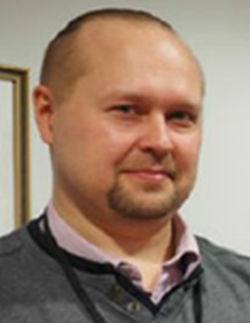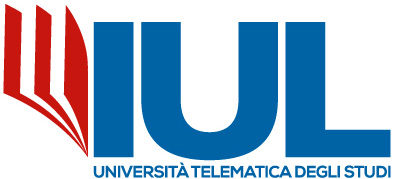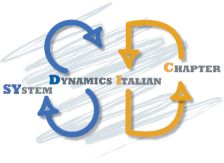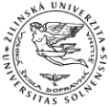


Keynote Speakers - ITEA Project "CyberFactory#1"
CyberFactory#1 – Attack Simulation on Manufacturing System Digital Twin
Abstract
CyberFactory#1 aims at designing, developing, integrating and demonstrating a set of key enabling capabilities to foster optimization and resilience of the Factories of the Future (FoF). The project outputs form a total of 12 key capabilities arranged in 3 capacity Layers:
- 1) Modelling and simulation of Factory System of Systems;
- 2) Factory of the Future optimization;
- 3) Factory of the Future resilience.
Short Biography
Adrien Bécue (M) (M) is Head of Innovation of Airbus Cybersecurity. He graduated from Toulouse Business School in 2003 with a Master in Aerospace Management. In 2004, he joined the French defence procurement agency (DGA) as a Program Purchaser for Land Weapon systems. In this position he managed a portfolio of industrial and research projects driven by Network-Centric Warfare and Digital Battlefield transformations. He joined EADS group in 2008 to manage acquisition programs in Tactical Communication systems for the French Navy and the International Security Assistance Force (ISAF) deployed in Afghanistan. In 2010 he became Research & Technology Project Manager for border security and maritime surveillance projects. In 2013 he joined the Airbus DS Cybersecurity as Research & Technology Coordinator for France and launched several projects with a focus on attack detection security of industrial control systems. In 2016 he was promoted Head of R&T and Innovation, taking over responsibility of the whole R&T portfolio of Airbus DS Cybersecurity across UK, France and Germany. In 2017 he won Eureka Award of Innovation for ADAX ITEA Project dealing with advanced detection and simulation-based decision support. In 2018 he won ITEA Award of Innovation for FUSE-IT Project dealing with security and energy efficiency for smart buildings. He is working-group leader for Industry and Transportation vertical markets at ECSO (European Cyber-Security Organization) and a member of ENISA's (European Network & Information Security Agency) expert groups for security of Industry 4.0 and IoT.

Head of Innovation
Airbus Cybersecurity
Elancourt, France
Holistic Correlation of Events from increased Security and Safety of Factories of the Future
Abstract
In FoF environment it is essential to develop mechanisms that ensure maximum availability of the production assets in crisis situations. An important issue to be taken into account is the correlation of the information from different sources in the FoF environment. However, this information, due to its nature, is completely heterogeneous and brings out a lot of different insights about FoF environment. In the context of CyberFactory#1 project several different cyber and physical shop floor events are being collected. Energy analyzers and shop-floor equipment are being monitored to detect deviations from the normal behavior of this shop-floor components. Also, an intelligent Intrusion Detection System was developed using the Suricata IDS and Machine Learning models to detect intrusions on network. Finally, the human behavior is also being observed in order to detect abnormal human behaviors, based for example in the emotions (angry, disgust, fear, happy, sad, surprise, neutral) transmitted by the image and the sound of the worker in the shop-floor. All these cyber and physical events are gathered and analyzed by a correlation engine that gives to the user the ability to understand that an attack is occurring and allows the user to understand what is happening, helping to design future preventing measures.
Short Biography
Isabel Praça, Advisor of ISEP Presidency for R&D, Professor at ISEP and Senior Researcher at GECAD - Isabel has a PhD in Electrical and Computer Engineering, and a Post-Doc on the application of multi-agent systems and machine learning to Intelligent Energy services, awarded by the Portuguese National Science Foundation with a scholarship (SFRH / BPD / 30111 / 2006). She has participated in over 25 national and international R&D projects, with relevant responsibilities. She has published over 150 papers, more than 50 in international journals and books. She has been working in the application of AI techniques to real problems since 2001. She participates in the technical and scientific committees of several conferences and is an active member of IEEE. She works in the area of Artificial Intelligence (AI) with special interest in machine learning, multi-agent systems, knowledge-based systems, decision support, context aware methodologies, and modelling and simulation. Main areas of application are: cyber-security; intelligent services, like predictive maintenance, optimization, data lake exploitation, among other, in Industry 4.0; multi-agent systems and forecasting in power systems. She’s CyberFactory#1 Technical Coordinator, and responsible for the work package on Optimization and Self-improvement of Factories of the Future.

Professor at ISEP and Researcher at GECAD
Porto, Portugal
Realistic Simulation-based Fleet of Cobots for FoF Optimization in Complex Scenarios
Abstract
Robots are traditionally programmed to perform very specific tasks with high precision. The essence of an industrial robot is its ability to repeatedly perform precise movements at high speeds. This approach works well in industrial environments where robots must execute high-precision movements in structured and controlled environments. With the advent of collaborative robotics, cobots can be reeducated to perform flexible tasks, but the environment is no longer static or structured. The increased capabilities of cobots involve multiple concurrent tasks with orthogonal demands: real-time-sensitive system control on the one hand, and intensive computational performance for navigation and perception algorithms. The complexity and variety of tasks to develop, test and integrate is overwhelming. In order to overcome the complexity, precise models and powerful simulation tools were implemented within the CyberFactory#1 project ranging from precise physical modeling to testing of built-at-night scenarios difficult to perform in reality due to time constraints and costs. Based on the achievements of the Cyberfactory#1 project, a human-robot coexistence scenario will be addressed that will show a realistic simulation that integrates learning by demonstration, cobot fleet navigation, and precise sensor modeling.
Short Biography
Sergi Garcia is a product manager at PAL Robotics, providing advice and support in Industrial Control Systems and Cybersecurity to the Company. He is also responsible for coordinating technical contributions to European research and development projects. As a software engineer he participated in the development of the first generations of walking humanoid robots in Europe. Previously, he completed his Master's studies in Systems Engineering and Computing at the Polytechnic University of Catalonia (UPC) and a Master's degree in Marketing and Public Relations at the Autonomous University of Barcelona (UAB). He also has a Master's Degree in Computational Engineering. During his studies and work experience he carried out several industrial projects related to embedded software in the field of robotics.

PAL Robotics
Barcelona, Spain
CyberFactory#1 - Increasing the FoF Resilience with Modelling and Simulation Tools
Abstract
Cyber-resilience in the Factories of the Future (FoF) is a topical but also complex issue to deal with. For some people FoF means digital transformation, while others are talking about
the convergence of information technology (IT) and operational technology (OT), both leading into advanced capabilities and efficiency. For some it means being a part of a larger supply
network or value chain while for others it stands for robots, updates and remote maintenance. One common thing about the previous perceptions is that the FoF resilience is reliant on
constant connectivity and functions such as redundancy and network failover become very important.
The process of becoming cyber-resilient requires a comprehensive understanding of the entire FoF and its functions, which comprises of - among others - proactive measures such as security
policy implementations of the IT and OT environments and threat analysis of novel technologies such as AI that might introduce new vulnerabilities like adversarial machine learning. In
addition there must be reactive measures based on e.g. real-time monitoring and incident management that need to be planned and practiced in advance in order to minimise the downtime for
recovery when the attack occurs and therefore it directly influences the disaster recovery and business availability. Since this is something that cannot easily be done in the production
environments due to their uptime and efficiency requirements, this introduces a huge opportunity for the digital twin technology and cyber ranges. This talk will discuss about the advancements
made in the CyberFactory#1 project in terms of using these aforementioned technologies in the operational and information technology context and how modelling and simulation will change
the future of cyber-resilience in Factories of the Future.
Short Biography
Mr. Jarno Salonen is working as a Senior Scientist in the Industrial cybersecurity team at VTT Technical Research Centre of Finland - the largest multi-technological research organisation in Northern-Europe. He has a professional background of over 20 years in making the digital world a better place for ordinary users especially in the areas of cybersecurity, privacy, resilience and development of electronic services. His activities include among others the definition of cybersecurity competences for the Finnish Government; “Cyber security competencies in Finland – Current state and roadmap for the future” (2015-2016). In 2017 he coordinated two projects for the Prime Minister’s Office in Finland; “Opportunities and benefits of blockchain technology in social and health care” and “Competence-based security of supply to guarantee the technological and industrial basis of Finland’s defence”. Currently he is leading a work package focused on Factory of the Future Resilience for the ITEA3 project “17032 CyberFactory#1” lead by Airbus CyberSecurity, and addressing the opportunities and threats for the Factory of the Future (FoF). He is also the project manager for VTT in two H2020 projects, SeCoIIA - Secure Collaborative Intelligent Industrial Assets (GA #871967) and CyberSec4Europe (GA #830929). He is the representative of VTT in two of the working groups in European Cyber Security Organisation (ECSO), founding member of the North European Cybersecurity Cluster (NECC), member of the Finnish Information Security Cluster (FISC) management team, vice-chair for Association of Finnish Defence and Aerospace Industries (AFDA) cyber group and his work has been published in several scientific journals and conferences.

Industrial Cybersecurity
VTT Technical Research Centre of Finland
Tampere, Finland





